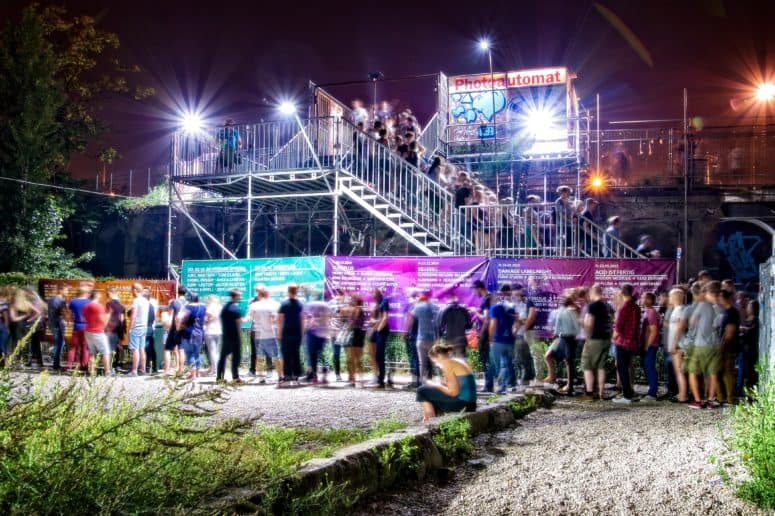When I went to India in 2014, I lived in the middle of a jungle for two weeks and sweat nonstop. It was always scorching hot and a fan was hard to come by. Eventually, my body couldn’t handle it. I was never dry. My arms, legs, and chest became covered in a rash the locals called ‘Prickly Heat’ – little red, raised bumps that itched like crazy and burned like hell.
After the local Jesuit took me to a doctor, we went to a pharmacy. The front of the pharmacy, which looked more like a carnival booth than a drugstore, was a blur of chaotic activity. There was no order. No structure. No line. My guide embraced the chaos and plunged right into the madness. He didn’t pay attention to who he squeezed past, who he cut off, who he skipped. It was everyone for themselves. I followed, sweaty and rashy, feeling the eyes of dozens of Indians gaze up at me, a red-armed larger-than-life foreigner.
I got my medicine. We left others still waiting for theirs behind.
***
#SkipTheLine – a new hashtag for me. I don’t like it.
The other day, we had lunch at my school for some community partners. We ordered a variety of sandwiches, but someone pulled me aside and mentioned that they didn’t eat bread or cold cuts.
“What do you prefer?” I asked. A salad with grilled chicken. I could do that. To save time, I went to my office, ordered a salad online from the restaurant across the street, paid, and set a pickup time for five minutes later. As I finished the transaction, there it was – download our app and #SkipTheLine.
I’ve seen this #SkipTheLine mentality spread. For example – order your coffee on your phone before you walk through the door. Never say anything to anyone. Never take your ear buds out. Never stop the music or the podcast. Find your name on a cup, grab, and go. Pre-prepared and paid for.
I walked into the restaurant with purpose, a little hustle in my step. The cashier knew the salad was mine.
“Eric?”
I nodded. Then silently, she handed me my bag and turned back to her work. I went back to mine, a one-word encounter nearly forgotten forever.
***
Most kids within 250 miles of Chicago have been to Six Flags: Great America. I was talking with some students the other day about Batman: The Ride, an attraction that opened at Six Flags in 1992. Its design was revolutionary, the track suspended above the riders whose feet dangled freely below – an inverted roller coaster.
I remember news stories about the ride and the famously long lines it created. Still, the next time I went to the park, my friends and I had to give it a go. We got in line, summer sun beating down on us. Half an hour passed. Then, an hour. Then, 90 minutes. Winding through the line, we became more and more impatient and wondered whether it was worth the wait.
But the line moved and eventually, I brought a protective harness down over my head and shoulders. Unexpectedly, the floor dropped out below us, and we rocketed off.
The next minutes left me upside down and delightfully discombobulated, my legs kicking wildly, my stomach stuck somewhere it didn’t belong, my yells drowned out by the smooth whir of a twisted mass of metal above. 90 minutes of waiting for two minutes of utter thrill. It was, of course, worth it.
I don’t always like lines, but I tend to think that they’re a good thing. When lines are too long, they can urge me to action. Waiting lists for people to get insurance or citizenship or emergency care should generate some urgency. Lines can be a call to remember that things can – and should – change. When they’re short, they can be a moment of gratitude or a witness to something that isn’t broken. They put me in my place. They encourage my patience. They give me a reason to be good to others and meet a stranger once in a while. They remind me that it’s not all about me, and when I do take advantage of a chance to move up against other people, they humble me and remind me of my privilege.
When I left India, I stood in a long line waiting to get through customs. My rash was finally clearing up. The terminal was cool and comfortable. I was ready to go home, but not exactly ready to leave. The line was just what I needed – a chance to stop and remember where I was and how I had changed. Sometimes slowing down is the right thing and sometimes, I need help slowing down. Sometimes, that’s what the line is for.
-//-


